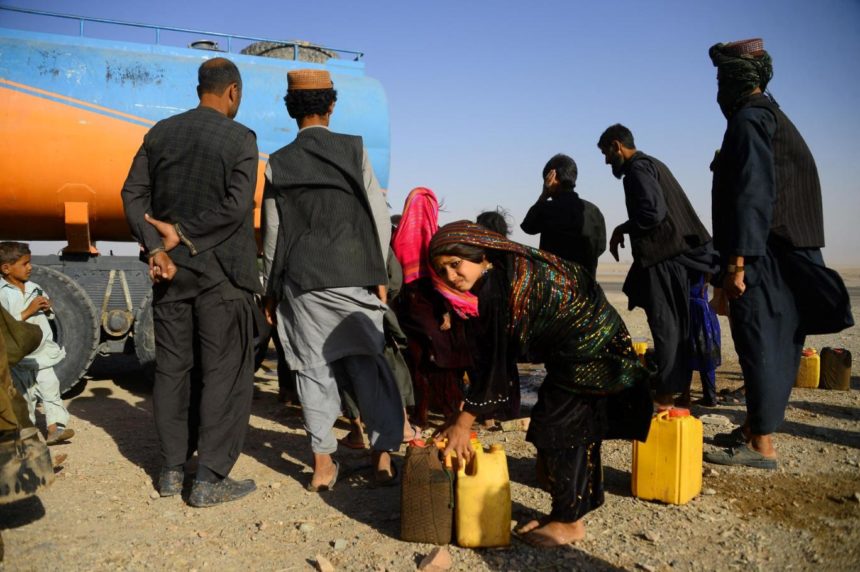RASC News Agency: In recent reports, the Asia-Pacific division of the United Nations Development Programme has explicitly declared that Afghanistan teeters on the brink of a climatic catastrophe. This revelation, disseminated on the night of Monday, December 4th, via the United Nations’ social media platform X, underscores that Afghanistan is currently grappling with its most severe drought, marking the third consecutive year of such conditions within the past 30 years. The Asia-Pacific division of the United Nations Development Programme has articulated, “Afghanistan is on the brink of a climatic catastrophe. Immediate actions are imperative to bolster climate resilience and ensure a sustainable future for both the people and the planet.”
Concurrently, amidst Afghanistan’s looming climatic crisis, discussions at the 28th International Climate Change Conference in Dubai, initiated late last week, engaged health ministers from over 60 countries in deliberations concerning the public health ramifications of global warming. According to available information, this conference, involving representatives from more than 200 governments, commenced on October 31st, and is slated to persist until December 12th. Notably, Afghanistan, owing to the international community’s non-recognition of the Taliban group, remains unrepresented officially in this conference.
It is essential to highlight that despite over two years of Taliban governance and global acknowledgment of their oppressive policies, no nation has accorded official recognition to the Taliban. Consequently, the group has not received invitations to partake in numerous international conferences. Moreover, it is pertinent to mention that successive droughts in diverse provinces have presented myriad challenges to Afghanistani citizens, compelling some to undergo involuntary migration from their native regions. Reports indicate that authorities have yet to implement effective measures to address this pressing dilemma.






